Visitors must treat K’gari with respect or lose access
It’s an idyllic holiday paradise beloved by generations of Queenslanders. But the latest in a spate of dingo attacks – and questions over the behaviour of visitors – has put a question mark over future access to K’gari.
K’gari: paradise by name, paradise by nature. But experts say this world-famous island must be treated with respect or potentially be lost for future generations to come.
In recent weeks K’gari’s reputation as an idyllic tourism destination for camping and fishing has come under threat by the apex predator that calls the island home.
A spate of dingo attacks, including a pack that set upon Brisbane woman Sarah Peet at Orchid Beach on Monday morning, has put K’gari in the headlines for all the wrong reasons.
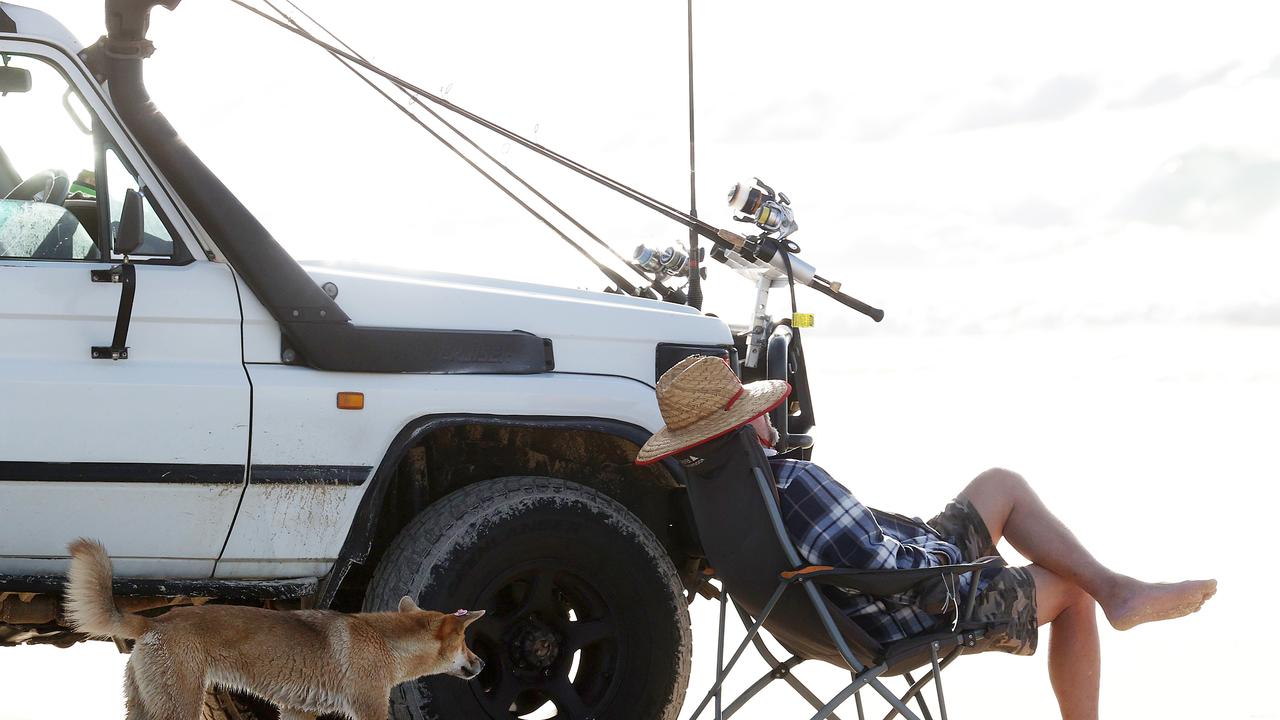
The rogue male dog, an adolescent and pack leader, is one of three dingoes on the island that rangers have fitted with GPS tracking collars due to “high-risk” behaviour.
In the days since the horror attack on Ms Peet, the dingo responsible has been allowed to roam free on the island and among visitors.
On Tuesday, the dingo and its packmates were seen stalking fishermen at Orchid Beach near to where Ms Peet was attacked, pushing one man into knee-high waves.
The man was forced to wave a fishing rod at the seemingly-undeterred animal before a ranger intervened.
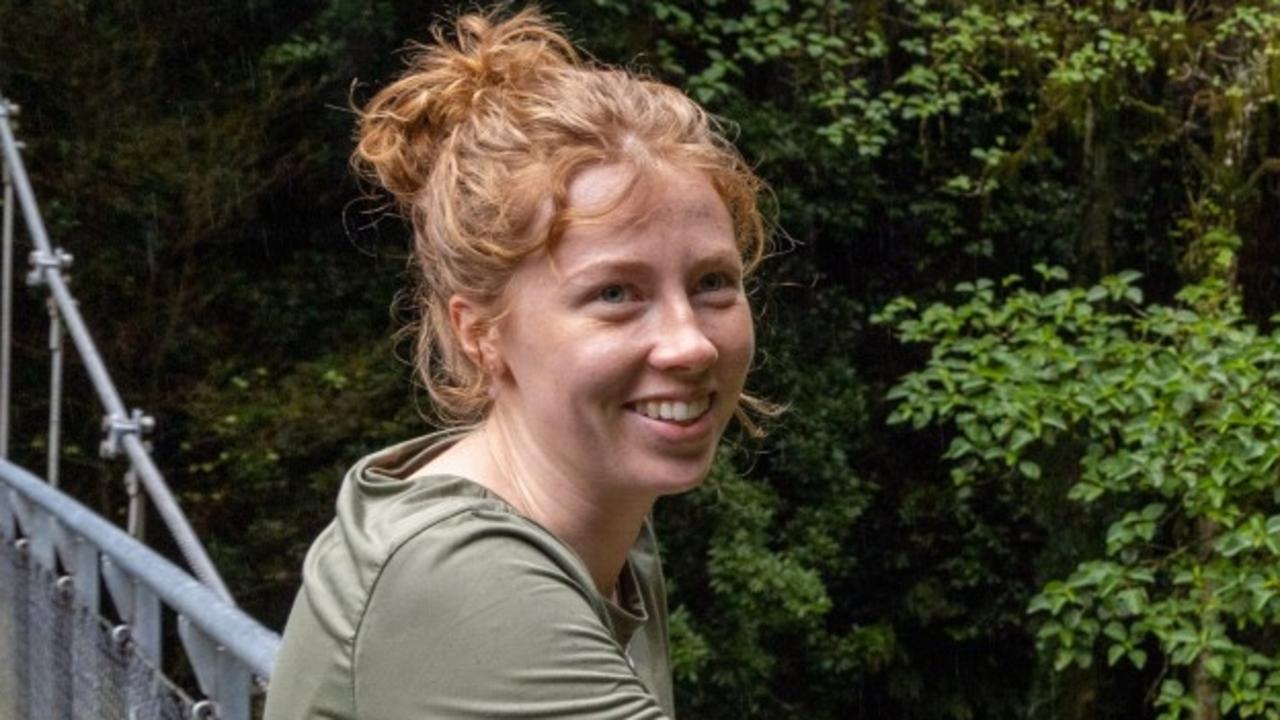
Campers too, have learnt that the island to be shared with the predators.
“We are in their backyard. This is their territory,” a K’gari visitor said.
While the island is equipped with dingo-proof fenced off areas, many of the beach camping areas are open, meaning wild dogs have a licence to wander.
Campers who this week spoke to The Courier-Mail told of sleepless nights of gazebos being invaded by “curious” dingoes looking for food.
The campers, using the rustic but effective orange dingo sticks, had to fend off the animals “every 10 minutes” and had to think twice about whether to risk that 2am toilet dash.
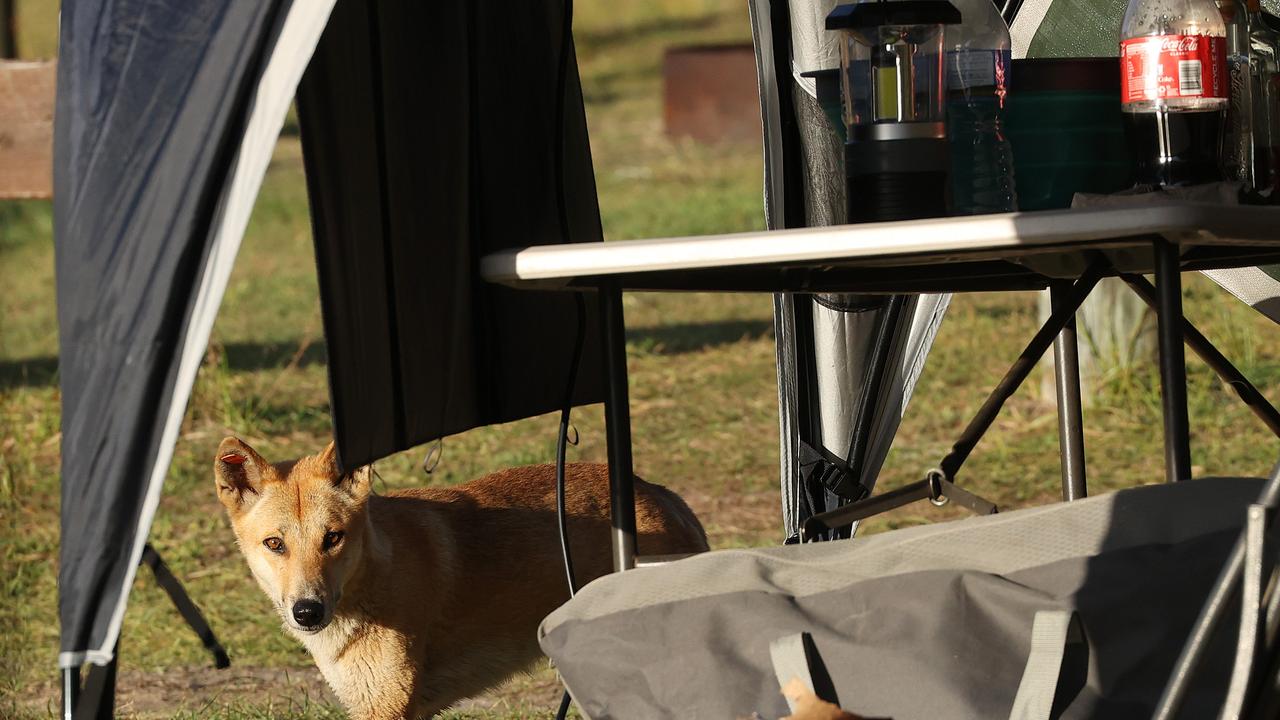
Over the past week, this publication has observed the dingoes, both male and female, strolling through campsites and coming within metres of families.
One young woman said she “shooed” away a dingo licking oil off a camp table while her partner said one had been scratching at their tent.
K’gari rangers though had sympathy for the alpha dingo, explaining that the behaviour patterns of a dingo could swing from more wild to shy, with the majority of “problems” occurring as young dogs.
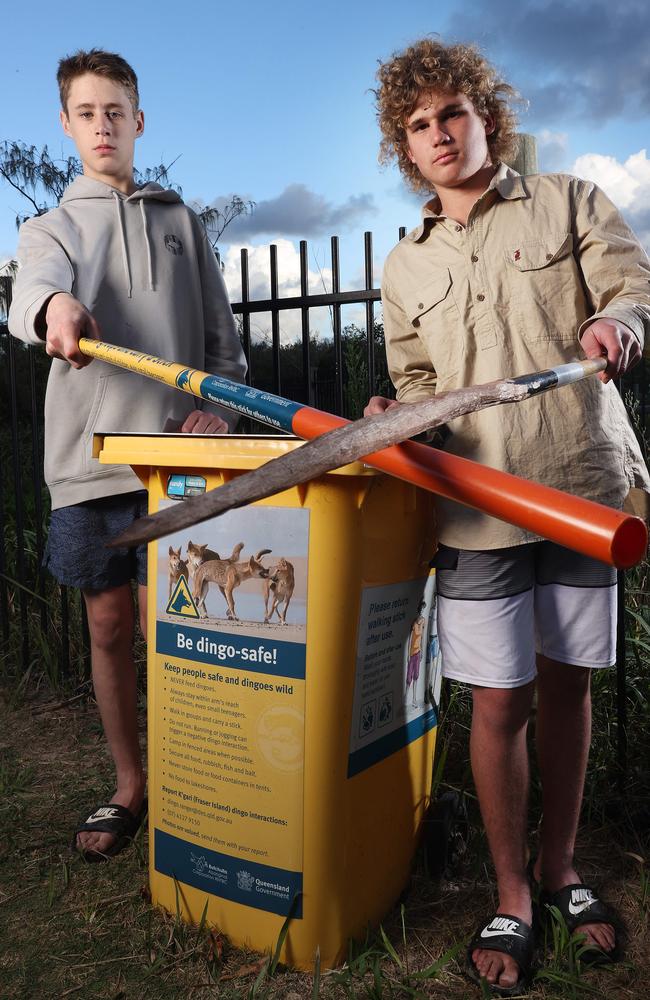
One park ranger said that almost all of negative dingo incidents could be down to one or two “problem” animals, similar to one “hoon” driving dangerously on the beach.
The rangers have spent much of the week warning campers of the dangers and educating them of how what to do if a dingo approaches.
The experts insist the “dingo sticks” are the best protection possible to ward off an unwelcome advancement and the majority of campers have taken note.
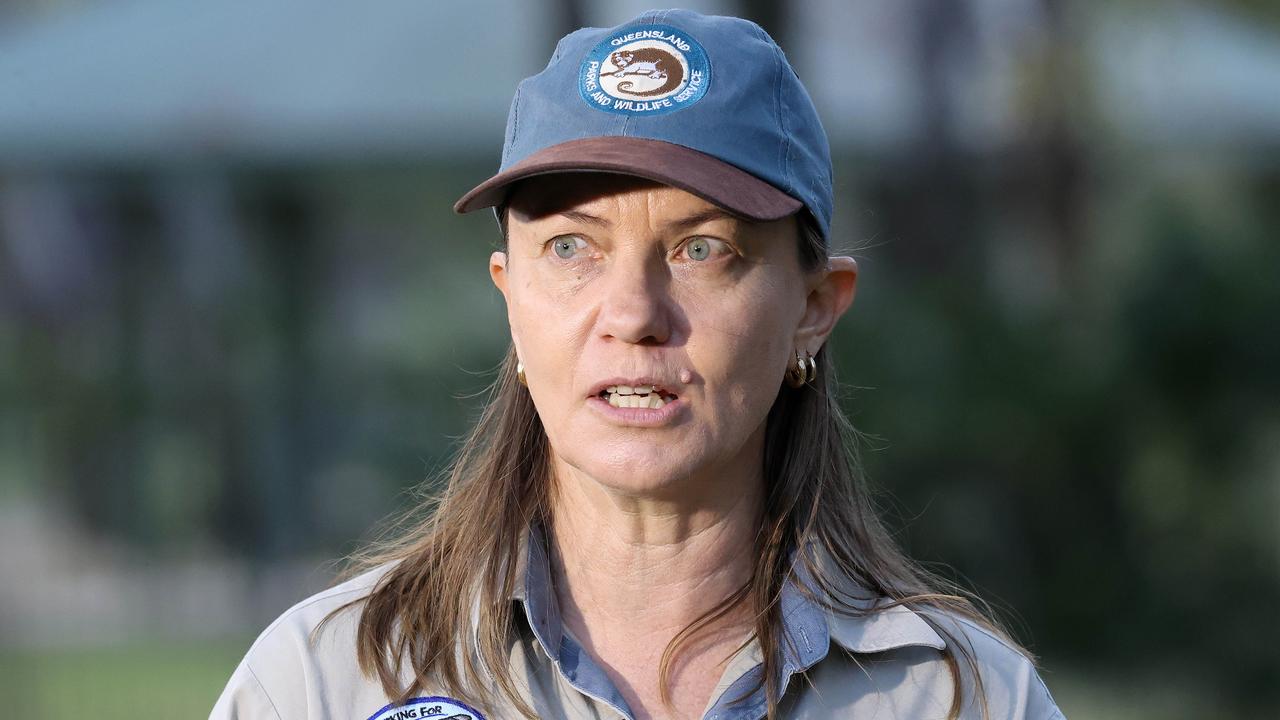
Campers said they were happy to use the sticks if it meant they could stay on the island paradise.
Senior ranger Linda Behrendorff said the island had to be treated with respect or potentially be lost for future generations to visit.
“It is a beautiful place. I see so many different things, be it by car or aircraft, there’s not one area that’s the same,” Ms Behrendorff said.
“You have different vegetation types, different animal … I’ve not seen anywhere else in Australia where you have such diversity.
“Anyone can come here for whatever reason, whether you’re a bird watcher, or a 4wd, whatever reason to get away you can find it on K’gari.
“But you just need to respect it as a world heritage area, understand she does have some associated risks with her and treat her with respect so she is here for the next generation.”





